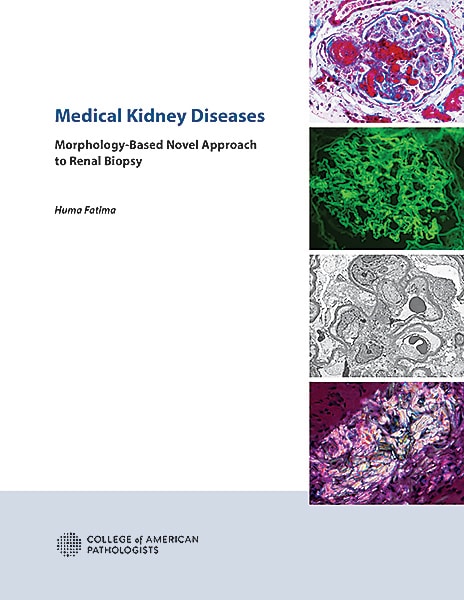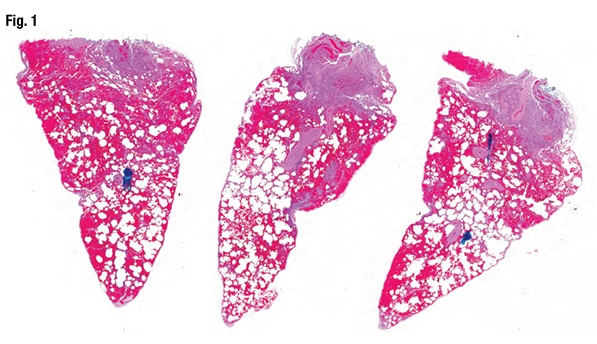July 2019—In the early, heady days of biologic therapies, use of these drugs resembled a common military tactic of the Civil War: charge and retreat, charge and retreat, charge and retreat. The approach, though modern at the time, often proved disastrous. Jeffry Katz, MD, recalls the excitement that greeted the arrival of anti-tumor necrosis factor-α agents, starting with infliximab (Remicade) in 1998. “What we used to do is we would give patients a drug, and we would wait for them to get sicker,” says Dr. Katz, medical director, inflammatory bowel diseases, University Hospitals Cleveland Medical Center, and professor of medicine, Case Western Reserve University School of Medicine.
Read More »July 2019
Idea to ease PT standard for HbA1c stirs alarm
July 2019—Excellence is considered the hallmark of progress throughout health care. We don’t expect to hear that, for a particular diagnostic test, standards may already be too high.
Read More »A killer app comes out of the crowd
July 2019—Twenty years ago, Ulysses Balis, MD, bought the domain name HistoQuery.org. He had realized that one day, digital pathology would be sophisticated enough to be incorporated into interactive, Web-based tools, so he did what any self-styled geek would do with such a nascent idea—he waited.
Read More »Close-up of HIV-2 qualitative RNA and viral load testing
July 2019—Qualitative HIV-2 RNA testing to resolve discordant HIV-2 results may be warranted but seldom results in confirmation of HIV-2 infection, Linda M. Styer, PhD, illustrated with data at the 2019 HIV Diagnostics Conference in March.
Read More »Letters
July 2019—We thoroughly enjoyed the article by Anne Paxton, “Microscopy’s dangers: From wear and tear to disabling injury” (April 2019). This is an underrepresented topic in the pathology world. I have been practicing for nearly 11 years; we are a group of 13 pathologists including part-time and full-time pathologists. Two female senior pathologists in our group underwent neck surgery less than a year apart owing to years of accumulated trauma.
Read More »In memoriam
July 2019—Elizabeth R. Cary, MD, state commissioner for Mississippi for the CAP Laboratory Accreditation Program, died on May 31 at age 81.Dr. Cary was the chief of clinical pathology at the G.V. (Sonny) Montgomery VA Medical Center in Jackson, Miss. In 1994, the CAP appointed Dr. Cary as Mississippi state commissioner. The following year, the VA appointed her as regional commissioner for the national VA system.
Read More »Hemostasis testing: What is the impact of direct oral anticoagulants?
July 2019—Prevention and treatment of venous thromboembolic disease is accomplished through the use of anticoagulant agents, which are prescribed for millions of Americans annually. A revolution in anticoagulant use has occurred over the last decade, as direct oral anticoagulants (DOACs) were introduced to the market. The new agents have a number of advantages over warfarin, the traditionally administered oral agent, which is a vitamin K antagonist (VKA).
Read More »From CAP Press: In new book, a practical approach to renal biopsy
July 2019—New from CAP Press is Medical Kidney Diseases—Morphology-Based Novel Approach to Renal Biopsy, by Huma Fatima, MD, assistant professor and director of the renal pathology laboratory, Department of Pathology, University of Alabama at Birmingham. It presents a simple and practical approach to renal biopsy by providing a pertinent differential diagnosis related to various patterns of injury involving renal parenchyma by light microscopy and reaching a correct diagnosis by assimilating immunofluorescence and electron microscopy findings. The 90-page book contains 66 cases, two of which we are reprinting here.
Read More »Puzzles, pearls: diagnosing interstitial lung disease
July 2019—Most fresh blood in lung wedge biopsies is artifact, but when it’s diffuse alveolar hemorrhage, the pathologist must call the clinician because DAH patients can go downhill fast. Maxwell L. Smith, MD, a consultant in the Department of Laboratory Medicine and Pathology at Mayo Clinic Arizona and associate professor, Mayo Clinic School of Medicine, shared that pearl from one of the 10 consultation cases he and Brandon T. Larsen, MD, PhD, co-presented in their CAP18 session on diagnosing interstitial lung disease. Their discussion of two of those cases follows.
Read More »Chemistry and immunoassay testing: Standardizing platforms, ranges, interfaces—panel weighs in
July 2019—One vendor or two. Automating esoteric testing. The desire for more smart systems. The need for analytics. Seven people spoke with CAP TODAY publisher Bob McGonnagle in May about chemistry and immunoassay testing. They are David Alter, MD, DABCC, of Emory University; Nina Babic, PhD, DABCC, of Medical University of South Carolina; Denise Pastore of Siemens Healthineers; Timothy Lenz, PhD, of Randox; Delena Carite of Roche Diagnostics; and Jessica Tubman, MPH, MT(ASCP), and Stephen Ishii, MT(ASCP), of Beckman Coulter. What follows is what they told us.
Read More »Put It on the Board
AMP bolsters position on consumer genomic testing
July 2019—The Association for Molecular Pathology revised its position for all consumer genomic testing. Based on a recent assessment of the current market landscape and privacy best practices, the latest position statement features an expanded list of conditions that must be met before the AMP can support a clinically meaningful test. The AMP remains neutral to all recreational, novelty, and ancestry testing that may create educational opportunities for the public. The expanded set of conditions is as follows: • All health-related claims must have well-established clinical validity. • The consumer genomic testing provider must comply with the CLIA statute and regulations. Test validation and interpretation should be performed by board-certified molecular laboratory professionals. • Information regarding the analytical and clinical validity of the tests should be present in all marketing materials and included in each report of results.
Newsbytes
Digital pathology: from education to implementation July 2019—Matthew Hanna, MD, is well aware that not all pathologists embrace the idea of using digital pathology for clinical applications. “I’m very confident it’s a familiarity issue,” says Dr. Hanna, clinical instructor in breast pathology and informatics at Memorial Sloan Kettering Cancer Center.
Read More »From the President’s Desk: CAP19—Widening our embrace
July 2019—I attended our first CAP annual meeting and haven’t missed one since. Pathology is dynamic and complex, so our learning team is forever coming up with useful and meaningful ways to present new material. Everyone who is involved in any way wants to make our time in Orlando engaging and enjoyable. CAP19 will be the best ever.
Read More »Clinical pathology selected abstracts
July 2019—Noninvasive testing for prenatal screening has been available through independent commercial companies and academic and hospital-based laboratories since 2011.
Read More »Anatomic pathology selected abstracts
July 2019—Although the majority of low-grade, early stage endometrial cancer patients have good survival rates with surgery alone, patients who recur tend to do poorly. Identifying patients at high risk of recurrence who would benefit from adjuvant treatment or more extensive surgical staging would improve individualized care for endometrial cancer patients.
Read More »Molecular pathology selected abstracts
July 2018—The use of liquid biopsies to non-invasively detect and monitor cancer is rapidly expanding. In these assays, fragments of cell-free DNA (cfDNA), which are released when cells undergo necrosis or apoptosis, are isolated from the patient’s plasma and sequenced. Because cfDNA can originate from cancer cells and normal cells, the variant allele frequency of cancer-specific somatic mutations can often be very low.
Read More » CAP TODAY Pathology/Laboratory Medicine/Laboratory Management
CAP TODAY Pathology/Laboratory Medicine/Laboratory Management









